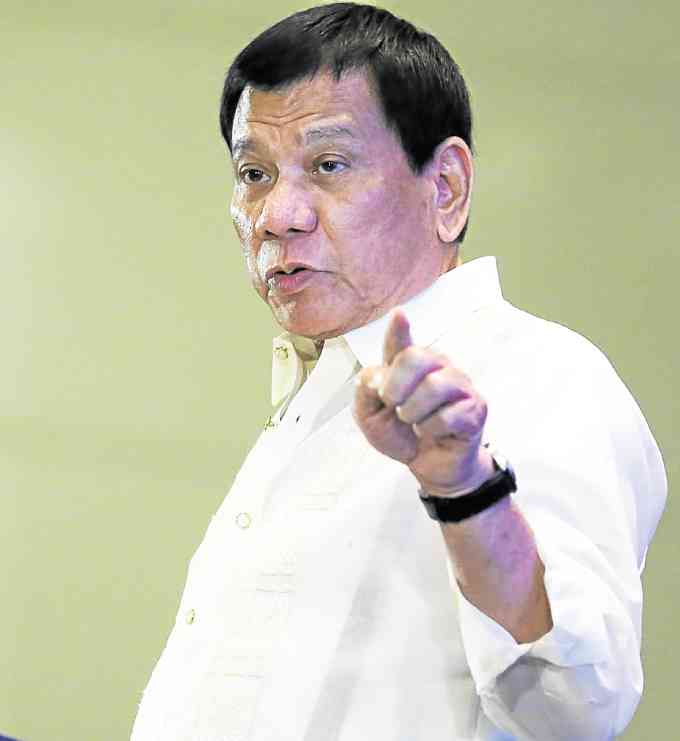
HB 5636 was the substitute bill with “moderate modifications” containing the original DOF proposal under House Bill 4774 and 54 other measures, which would adjust personal income tax brackets to correct “income bracket creeping”; reduce the maximum personal income tax rate to 25 percent over time, save for the “ultra-rich” who would be slapped a higher 35 percent; and shift to a simpler modified gross system.
It would also broaden the value-added tax base by cutting down on exemptions; increase excise taxes on petroleum, automobiles and sugar-sweetened drinks; as well as reduce the estate and donors’ tax rates.
The DOF is eyeing House approval of the first tax reform package before Congress’ sine die break on June 2, such that when session resumes on July 24, it will be then the Senate’s turn to discuss the measure, according to Alvarez.
Also, Alvarez said the DOF wanted the implementation of the new personal income tax rates by January 2018, ahead of the implementation of the excise tax hikes on oil, vehicles and sugary beverages. “We want taxpayers to feel the bigger take-home pay before the other tax increases,” she said.
In a statement, the DOF said Executive Secretary Salvador Medialdea in his May 29 letter to House Speaker Pantaleon Alvarez that President Duterte certified “the necessity of the immediate enactment of HB 5636 or the proposed Tax Reform for Acceleration and Inclusion Act (Train).”
“The benefits to be derived from this tax reform measure will sustainably finance the government’s envisioned massive investments in infrastructure thereby encouraging economic activity and job creation,
as well as fund the desired increase in the public budget for health, education and social programs to alleviate poverty,” President Duterte was quoted by the DOF as saying in a separate letter to Senate
President Aquilino Pimentel III.
Finance Secretary Carlos G. Dominguez III had appealed to President Duterte in an earlier memorandum “in the hope that the House of Representatives, from where all tax and budget laws originate, could pass the Train, which is the first package of the comprehensive tax reform program, before Congress goes on its sine die adjournment,” the DOF said.
“We believe that the President’s certification of the tax reform bill as an urgent legislative measure can help ensure timely and full passage of the tax reform package before the close of the session on June 2, 2017, so that the benefits of the reform can be felt sooner,” Dominguez told President Duterte.
The DOF said that “Train aims to make the country’s antiquated tax system simpler, fairer and more efficient, especially for the poor and low-income families, by making sizable cuts in personal income tax
rates—and to make up for the projected revenue loss, and at the same time raise funds for the Duterte administration’s massive expenditure program, by expanding the VAT base and adjusting excise taxes on oil, automobiles and other products.”
Dominguez warned of “dire consequences” if Train’s passage was delayed “given its design to help guarantee a steady revenue flow for the Duterte administration’s unmatched public investments over the next half-decade to support its envisioned ‘golden age of infrastructure,” attract investments and create jobs, cut the poverty rate from 21.6 percent to 14 percent, and transform the Philippines into an upper
middle-income economy by the time the President leaves office in 2022.”
“Without the Train bill, the government’s strategy to embark on an aggressive expenditure program by raising deficit spending to three percent of the gross domestic product (GDP) would lead to an “unsustainable fiscal position,” which, in turn, could trigger a credit rating downgrade possibly costing the government an extra P30 billion in annual debt servicing and P100 billion more in higher borrowing costs for the public,” Dominguez said.
“Such a scenario could leave the government more vulnerable to fiscal risk because it would adversely affect the funding source for increasing state liabilities such as the pension of uniformed personnel and indigent senior citizens. With many countries including China already being downgraded, this tax reform bill serves as our country’s immunization from such threat,” Dominguez added.
Also, “the non-passage of the Train bill by the Congress would disrupt the planned increase in public investments in infrastructure, education, health and social protection, which the government seeks to undertake to make sure that the country’s continued high growth truly leads to the economic inclusion of all Filipinos,” Dominguez warned. SFM